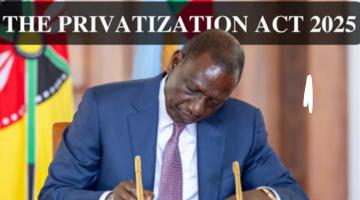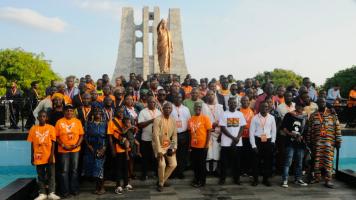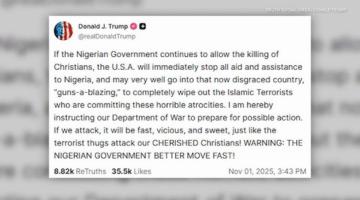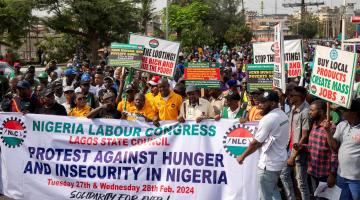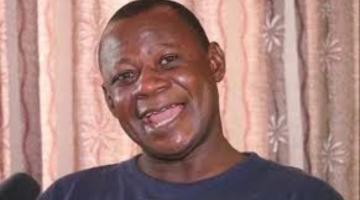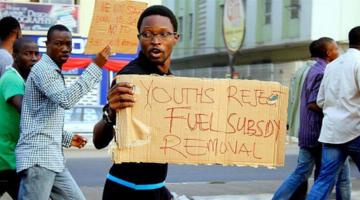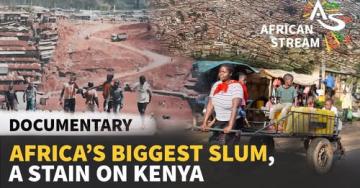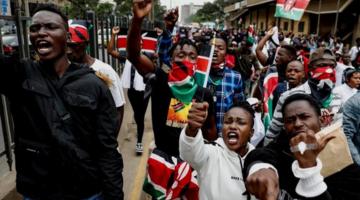Waves of uprisings are spreading across the African continent and the masses are demanding freedom from imperialist powers and the comprador leaders that enable their ongoing exploitation. There are lessons to be learned from the past and current attempts at creating a unified Pan-African force that can free the continent from the clutches of empire.
The time for Africans to reclaim their land, dignity, and future is now. The only means by which Africans can achieve liberation and self-determination is through collaborative unity, in the form of scientific socialism. A divided continent will only remain mired in the exploitation and degradation that has defined its very existence since the imposition of colonialism a century and a half ago.
Today in 2024, the African continent is still recuperating from the stranglehold of European colonialism. While most of its nations achieved what can ostensibly be called “flag independence” during the 20th century, colonial powers continued to exert enormous economic, political, and military influence. As Kwame Nkrumah stated, ‘The African “nations” of today, created artificially by foreigners for their own purposes…continue to struggle on, each one separately, in a pathetic and hopeless attempt to make progress, while the real obstacle to their development, imperialism, mainly in its neo-colonialist stage, is operating on a Pan-African scale.’
Western imperialism in the form of neocolonialism has served to deprive Africans of real political power in their homelands and trapped them in dire poverty, despite the immense mineral wealth underneath their feet. But recently, the masses have taken to the streets to voice their righteous anger at the neglect and corruption of their leadership, and its self-enriching collusion with western capital.
Over the last three years, the African Sahel region has witnessed a wave of coups in several countries. Out of these, the three that appear to have progressive potential, occurred in the Sahel regional nations of Mali, Burkina Faso, and Niger. Recently, the three countries have convened to form the Alliance of Sahel States (AES), in order to expand cooperation on key matters including defense from both internal threats and from external western aggression. This confederation came into being just months after the three countries withdrew from the hub of western influence on the continent known as the Economic Community of West African States (ECOWAS) in January of 2024. In an additional act of sovereignty, Niger expelled the French and U.S. military from their country.
Also, in June of this year, protests erupted in Kenya against a controversial tax bill that would have made essential commodities significantly costlier. Kenya’s President, Willam Ruto, indicated that the tax hikes were necessary to pay off exorbitant loans from the International Monetary Fund (IMF). This was a troublesome betrayal for millions of struggling Kenyans. In the minds of many Kenyans, Ruto was directly linked to the IMF, an imperial tool of the West that is used to gain access to global south resources., As a result, the protests have continued, along with calls for Ruto’s removal, despite his withdrawal of the tax hike.
Furthermore, in July of this year, widespread protests against corruption have emerged in Uganda, which like Kenya, is a former British colony in east Africa. Since Yoweri Museveni became what appears to be president for life in 1986, his regime has imposed mass privatizations and sold Ugandaʼs assets to international financiers, as he and his cronies benefited through corrupt deals. This widespread looting of resources has had a catastrophic effect on the working class and the rural masses.The national poverty rate in Uganda is a dreadful 41 percent. And, between 2013 and 2017, poverty in Uganda increased from 6.7 million to 10 million people, in a nation with a population of over 48 million people. At the same time, income inequality has skyrocketed.
Most recently, Nigeria, Africa’s most populous country, is struggling with soaring inflation and a sharply devalued naira currency after President Bola Ahmed Tinubu introduced IMF reforms a year ago which were supposedly aimed at reviving the economy. Undoubtedly spurred by the wave of anti-corruption and anti-colonial activism across the continent, Nigerians have taken to the streets to protest against the rising inflation rates, the dire unemployment and the crippling hunger. The standard of living in Nigeria has been in decline for decades. And as the living conditions worsen, economic desperation increases, which further feeds into the corruption that’s endemic in the political culture.
The most important lesson the continent can learn from the AES is the importance of Pan-African unity and cooperation. The current system and political culture in Africa which facilitates the poverty and desperation of the masses, while generating the obscene wealth of the elite, needs to be completely uprooted. In addition to wiping clean this current slate of malevolent political actors, there must also be a complete severing of ties with neocolonial western masters. The AES has become an exemplar of all these actions.
While western media and governments focus on the cosmetics of “democracy" in Africa, they pick and choose where such democracy exists and where it does not, and hence who’s an enemy or not. Meanwhile, only nations whose leaders are willing to prioritize western capital at the expense of its people are deemed to have a sufficient “democracy.” But no true democracy can exist where there is such widespread poverty and deprivation. Only through cooperative unity can Africa defend itself from outside aggression and exploitation. And only through scientific socialism, as advocated by Nkrumah himself, can Africa develop itself sufficiently according to the needs and potential of its people. The time is now for Africa to rid itself of the chains of bondage and servitude and to achieve its true destiny of greatness.
Ferdinand Ibebuchi is an attorney and organizer with Pan-African Community Action and a member of the Black Alliance for Peace.

